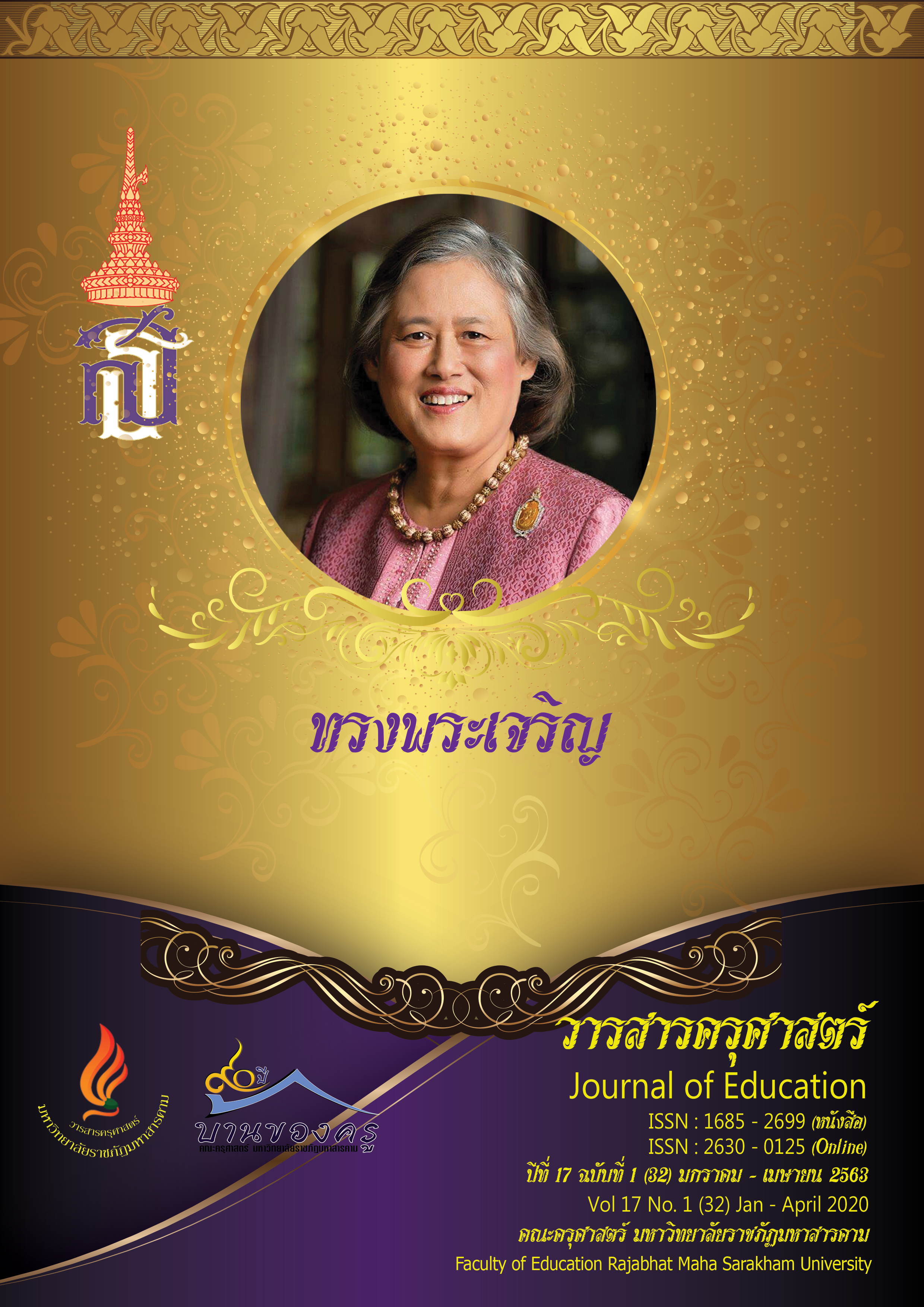Development of Learning Management Skills for Teachers in 21st Century
Main Article Content
Abstract
The purposes of this research were: 1. To develop learning management skills and
2. collect data to propose guidelines in developing learning management skills for teachers in the
21st century. The study groups consisted of 1) the quantitative target group was 38 undergraduates
who were studying in the 4th year in the Faculty of Education, Rambhai Barni Rajabhat University and
2) 67 people of the qualitative target group and informants. The research methodology was divided
into two stages: the first stage was quantitative research using software to analyze quantitative data
and the statistics used were frequency, percentage, mean and standard deviation, and the second
stage was a qualitative research using 1) questionnaire and 2) interviews.
The research revealed that 1) the development of learning management skills for teachers
in the 21st century in terms of the process showed that the appropriateness of the development
process used in the research was at the high level. When determined per item found that the
second learning process on a new educational paradigm and learning management principle for
learning skill development in the 21st century had appropriateness at the highest level with the
highest mean. And 2) The guidelines to develop learning management skills in the 21st century,
as a whole, showed that the respondents thought that there should be a knowledge-sharing forum
for the participants or there should be periodical relationship activities for the same group of
participants rotating from school to school by mutually considering an appropriate model, there
should be a further study like this to create new generations who were ready to improve the
educational paradigm of the country, to change for other organizations that would like to develop
their teachers in this way.
Article Details
ข้อกำหนดเบื้องต้นที่ผู้นิพนธ์(ผู้ส่งบทความ) ควรทราบ
1. ผู้นิพนธ์ที่ประสงค์จะลงตีพิมพ์บทความกับวารสาร ตั้งแต่เดือนมกราคม 2563 เป็นต้นไป ให้ใช้รูปแบบใหม่ (Template 2563) โดยสามารถดูตัวอย่างได้ที่เมนู GUIDELINES
2. จะตีพิมพ์และเผยแพร่ได้ ต้องผ่านการประเมินจากผู้ทรงคุณวุฒิ (Peer Review)
3. การประเมินบทความโดยผู้ทรงคุณวุฒิ (Peer Review) เป็นแบบ Double Blind
4. การอ้างอิงบทความใช้หลักเกณฑ์ APA (American Psychological Association) คลิก
5. บทความถูกปฏิเสธการตีพิมพ์ ไม่ผ่านการประเมิน ผู้นิพนธ์ขอยกเลิกเองหรือชำระเงินก่อนได้รับการอนุมัติ ทางวารสารไม่มีนโยบายการคืนเงิน
References
วิจารณ์ พานิช. (2556). การเรียนรู้เกิดขึ้นอย่างไร. กรุงเทพมหานคร: มูลนิธิสยามกัมมาจล.
________. (2555). วิถีสร้างการเรียนรู้เพื่อศิษย์ในศตวรรษที่ 21. กรุงเทพมหานคร: มูลนิธิสดศรีสฤษดิ์วงศ์.
________. (2555). สนุกกับการเรียนในศตวรรษที่ 21. กรุงเทพมหานคร: มูลนิธิสดศรี สฤษดิ์วงศ์.
สถาบันส่งเสริมการสอนวิทยาศาสตร์และเทคโนโลยี. (2559). สรุปผลการวิจัย PISA 2015. กรุงเทพมหานคร:กระทรวงศึกษาธิการ.
สำนักงานเลขาธิการสภาการศึกษา. (2559, 21 มกราคม). ขีดความสามารถในการแข่งขันด้านการศึกษาของประเทศ
ในเวทีเศรษฐกิจโลก. เอกสารประกอบการประชุม OEC Forum ครั้งที่ 3/2558 (World Economic Forum: WEF 2015 – 2016). บริษัทพริกหวานกราฟฟิค จำกัด, กรุงเทพมหานคร.
Programme for International Student Assessment (PISA). (2015). Excellence and Equity in Education. PISA 2015 Results, 1, 265-266. doi: 10.1787/1996377.


